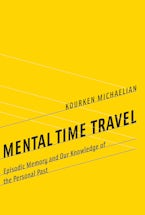“In lucid, deeply informed prose, James Klagge recounts Wittgenstein's pedagogical journey from an esoteric to an evangelical mode—from monological thinking to writing and teaching in dialogue, in which the sometimes contentious contributions of his audience began to matter. In later years, Wittgenstein presented his work as a poetry rich in parables and similes, part of the relocation of his peacetime 'artillery'—i.e., the trajectory of his thought to his auditors. Wittgenstein had been an artillery 'spotter' during World War I: Klagge develops this simile in an ingenious and engaging way to organize his narrative.”
Stanley Corngold,, author of Walter Kaufmann: Philosopher, Humanist, Heretic
“In this highly personal and startlingly original treatment of Wittgenstein's relationship to his colleagues, his students, and his larger readership, James Klagge presents us with a Wittgenstein moving gradually from the esoteric method of the Tractatus to the more 'evangelical' mode of the later work—a writing more poetic than expository or argumentative that moves us less to agreement than to action. Wittgenstein's parables and aphorisms, his literary figures and surprising allusions endow his later work with their unique sense of mystery. Klagge, himself an inventor of parables and apt narratives, has here given us a genuinely beautiful book.”
Marjorie Perloff, Sadie Dernham Patek Professor of Humanities, Emerita, Stanford University
“In his strikingly original new book, James Klagge offers the first fully developed account of the literary dimension of Wittgenstein's writing. Along the way, Klagge opens up fascinating possibilities for thinking about the significance of poetry to philosophy. Wittgenstein's Artillery is a tour de force. It also happens to be a ton of fun to read.”
John Gibson, Professor of Philosophy, University of Louisville
An original contribution to Wittgenstein scholarship that will interest both those who are curious about Wittgenstein's life as well as how it might have influenced his thinking and those who are interested only in the think-ing itself. It is clearly written, carefully researched... instructive, and a pleasure to read... It is refreshing, also, to see a novel approach to material that has been written about so much before.
Duncan Richter
Philosophical Investigations
"As is to be expected, the marvel of Klagge's forty-some years of original scholarship in Wittgenstein Studies...takes centre stage in Wittgenstein's Artillery....Klagge offers his readers a very unusual perspective on how to tackle material that all too often seems impenetrable....[T]here is much to admire, to debate, to generate surprise and even some discomfort: Wittgenstein's Artillery is astonishing both for its scholarship and its courage."
MIND
"An insightful exploration... Klagge thoroughly analyses Wittgenstein's views on and uses of poetry and argues that this art form is central to his way of doing philosophy... This book will therefore be of great use to anyone interested in Wittgenstein and poetry and, to a wider extent, in Wittgenstein's way of doing philosophy."
Nordic Wittgenstein Review
“In this superb book, Klagge (Virginia Tech) elucidates what Wittgenstein meant by comparing the composition of philosophy with the composition of poetry. A central question about Wittgenstein's work is whether his writing style is merely an idiosyncrasy of the man or a vital element of his method(s). Klagge offers readers a way of answering: it is a vital element of his method(s)....Summing Up: Essential.”
Choice
"Superb....Klagge's book is a tour de force and there is nothing else like it in print....a must-read for Wittgenstein scholars with an interest in poetry, and it should be of great interest to anyone who wishes to understand better the possibilities of philosophy as a form of writing."
The Journal of Aesthetics and Art Criticism

Winner of the Outstanding Academic Title, Choice, 2022











